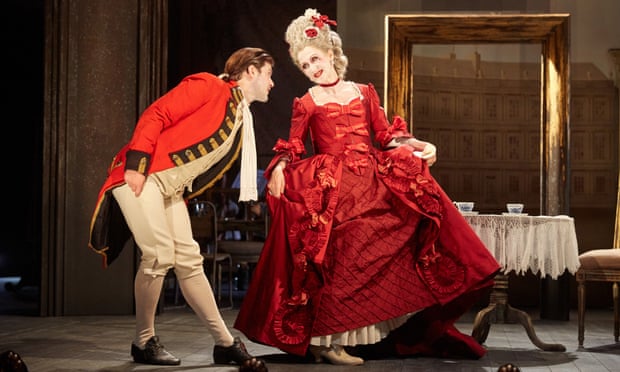
Word of the Day: Malapropism
Today’s word of the day, courtesy of WordGenius, is malapropism. The website defines it as “The practice of unintentionally using the wrong word or phrase, usually to humorous effect.” Dictionary.com defines it as “an act or habit of misusing words ridiculously, especially by the confusion of words that are similar in sound.” Etymonline says that the word comes into English “from Mrs. Malaprop, character in Sheridan’s play “The Rivals” (1775), noted for her ridiculous misuse of large words (such as contagious countries for contiguous countries), her name coined from malapropos.” Malapropos is an adverb “’unsuitably, unseasonably,’ 1660s, from French mal à propos ‘inopportunely, inappropriately,’ literally ‘badly for the purpose,’ from mal (see mal-) + proposer ‘to propose, advance, suggest,’ from pro ‘forth’ (see pro-) + poser ‘put, place’ (see pose (v.1)). As an adjective, ‘inappropriate, out of place,’ by 1711.”
Richard Brinsley Sheridan was born in Dublin, Ireland, in 1751. His father was an actor/manager of a theater company in Dublin, and his mother was a writer of both plays and novels, including two plays that were produced in London. A member of the Anglo-Irish gentry class, Sheridan received a classical education and was a gentleman, so his education included fencing and horsemanship.
In Bath, a very popular resort town in England, he fell in love with the singer Elizabeth Linley. He loved her so much that he actually fought two duels over her. Captain Thomas Matthews apparently wrote some unflattering things about Linley in a newspaper article, and Sheridan challenged him. In the first duel, Sheridan deprived Matthews of his sword, and Matthews was forced to write an apology. But someone made the apology public, leading to a challenge by Matthews. In the second duel, both participants broke their swords, and Sheridan took a beating, though the duel was essentially a draw.
He then married Linley, and because he was a gentleman, he convinced her to give up her public performing. Unfortunately, the Sheridans enjoyed living above their means, means which would have been so much better with Elizabeth’s income from performing. Sheridan had done some writing in his younger years, though nothing of note. He even had written parts of some plays, though he hadn’t finished them. In his growing concern over finances, he decided to write a play, and the play he wrote was The Rivals.
The Rivals is essentially an 18th century British romcom. It includes love and romance, disguise, comedy, and a duel. But the most memorable character in the play is a middle-aged woman named Mrs. Malaprop. And this character gives us the word malapropism. Here are some examples of her dialogue:
“There’s a little intricate hussy for you!”—she meant “impudent.”
“Fy, fy, Sir Anthony! you surely speak laconically.”—she meant “ironically.”
“I would by no means wish a daughter of mine to be a progeny of learning.”—she meant “prodigy.”
About raising a female child, she says, “as she grew up, I would have her instructed in geometry, that she might know something of the contagious countries;—but above all, Sir Anthony, she should be mistress of orthodoxy, that she might not mis-spell, and mis-pronounce words so shamefully as girls usually do; and likewise that she might reprehend the true meaning of what she is saying.”
All of these quotations are from Act 1, scene 2 of The Rivals.
Sheridan did not invent this form of verbal humor. For instance, Shakespeare’s character Dogberry, in Much Ado about Nothing, makes the same kind of verbal mistakes. Some examples:
“First, who think you the most desertless man to be constable?”—he meant “deserving.”
“You are thought here to be the most senseless and fit man for the constable of the watch;”—he meant “sensible.”
“You shall also make no noise in the streets; for, for the watch to babble and to talk is most tolerable and not to be endured.”—he meant “intolerable.”
BTW, The Rivals, which premiered at Covent Garden on January 17, 1775, was not exactly a success. Sheridan immediately withdrew the play and, over the course of eleven days, completely rewrote it. It reopened on January 28 and was well received. It was a particular favorite of the royal family, and today it is considered a classic.
The late eighteenth century is remembered for non-fiction prose, like that of Samuel Johnson, for novelists like Oliver Goldsmith, Frances Burney, Tobias Smollett, and Ann Radcliffe, and a few poets like William Blake, Robert Burns, and William Cowper. But the late eighteenth century was not exactly a great time for drama. Much of what was performed was revivals of earlier works or poorly written melodramas. But in the realm of comedy, Oliver Goldsmith and Richard Brinsley Sheridan shone. And the most memorized character of all was Mrs. Malaprop. I meant memorable. Sorry.
The image is of “Rhys Rusbatch as Jack Absolute and Julie Legrand as Mrs Malaprop. Photograph: Mark Douet.” The 2016 production of The Rivals was directed by Dominic Hill and performed at the Bristol Old Vic, with the set designed by Tom Rogers.